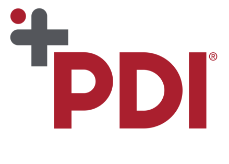Most Common Questions
-
What is sanitising in the context of professional environments such as hospitality?
Show AnswerSanitising in hospitality refers to the process of cleaning and disinfecting various areas and surfaces within hotels, restaurants, and other hospitality establishments to ensure a safe and hygienic environment for guests and staff.
-
Why is sanitising important?
Show AnswerSanitising is crucial in hospitality to prevent the spread of germs, bacteria, and viruses, including those that cause illnesses. It helps maintain a clean and safe environment, giving guests confidence in the establishment's commitment to their health and well-being.
-
What areas should be regularly sanitised?
Show AnswerCommonly sanitised areas include guest rooms, lobbies, lifts, dining areas, kitchens, bathrooms, fitness centres, and frequently touched surfaces like doorknobs, handrails, and light switches.
-
What cleaning products are typically used for sanitising?
Show AnswerEffective cleaning agents like wipes and other solutions containing approved disinfectants are commonly used. These products should be chosen for their ability to kill germs and viruses.
-
How often should sanitising be performed?
Show AnswerHigh-traffic areas and frequently-touched surfaces should be sanitised multiple times a day, while less frequented areas might require less frequent sanitisation. Regular cleaning schedules should be established based on foot traffic, the level of interaction and the risk.
-
Do staff need special training for proper sanitising procedures?
Show AnswerYes, it's essential for staff to receive proper training on effective sanitising procedures, including the correct use of cleaning products, appropriate protective wear (if relevant), and safe handling practices.
-
Is sanitising different from regular cleaning?
Show AnswerYes, while regular cleaning removes visible dirt and debris, sanitising goes a step further by using specific cleaning agents to kill germs, bacteria, and viruses on surfaces.
-
Is sanitising different from disinfecting?
Show AnswerYes, while a disinfecting product kills germs, bacteria and viruses, a cleaning product would also be required prior if there was visible dirt and debris present. A sanitising product has cleaning properties, therefore cleaning and disinfecting can be performed using the same product (a two-step process).
-
How can guests contribute to a sanitised environment in hospitality settings?
Show AnswerGuests can play their part by practicing good hygiene, washing their hands frequently, using hand sanitizers, and respecting the established sanitization protocols within the establishment.
-
Are there any eco-friendly sanitising practices in hospitality?
Show AnswerYes, more and more establishments are prioritising environmentally friendly cleaning products and practices that minimise the impact on the environment while maintaining high sanitisation standards.
-
How does PDI International stay updated on the latest sanitisation guidelines?
Show AnswerWe rely on reputable health organisations, government agencies, and industry associations for the latest guidelines and best practices related to surface sanitisation and cleanliness.
-
How can I purchase Sani Professional Wipes?
Show AnswerTo find your local Sani Professional distributor, contact PDI International via email
(contact@pdi-emea.com) or phone (+44 (0)8081 697 945) -
What is the intended use of Protect 360° Biodegradable Sanitising Wipes?
Show AnswerProtect 360° Biodegradable Sanitising Wipes have been developed to effectively clean, disinfect, and protect various surfaces
-
Are Protect 360° Biodegradable Sanitising Wipes considered “Food Safe”?
Show AnswerYes, Protect 360° Biodegradable Sanitising Wipes are considered "Food Safe." The formulation, which contains lactic acid as the active ingredient, has been designed to eliminate harmful bacteria, viruses, and pathogens while maintaining the safety and quality of food products. For more details, request our "Food Safety" statement.
-
How should I use Protect 360° Biodegradable Sanitising Wipes?
Show AnswerFirst, use a wipe to remove any visible dirt if necessary. Then, use an additional wipe to disinfect the surface using an "S-shaped" motion from top to bottom. For detailed instructions, refer to our Instructions for Use poster.
-
What surfaces can Protect 360° Biodegradable Sanitising Wipes be used on?
Show AnswerThese wipes are suitable for use on most non-porous surfaces, including food preparation areas, furniture, chopping boards, fridges/freezers, kitchen appliances, countertops, bathrooms, handrails, light switches, and door handles. For optimal protection, avoid using them on natural stones, untreated woods, and vinyl surfaces.
-
Are Protect 360° Biodegradable Sanitising Wipes safe to use on skin?
Show AnswerYes, these wipes are dermatologically tested and safe for use on skin. Due to its natural formulation, it is not necessary to use protective clothing when using these wipes.
-
How sustainable are Protect 360° Biodegradable Sanitising Wipes?
Show AnswerThese wipes are made with 100% biodegradable fibres and a plant-based active formulation. They are manufactured in the UK. The canisters are made from 100% PCR. Both the wipes and packaging are 100% recyclable.
-
Will Protect 360° Biodegradable Sanitising Wipes cause surfaces to be sticky?
Show AnswerNo, unlike many sanitising products that contain quaternary ammonium compounds
(quats), these wipes are developed with a natural active ingredient (lactic acid) to provide longer-lasting “stick-free” surface protection.
